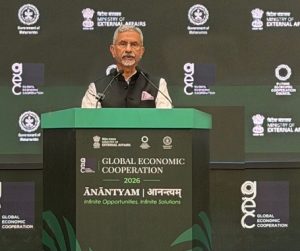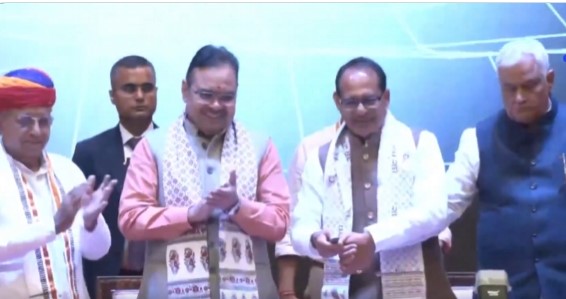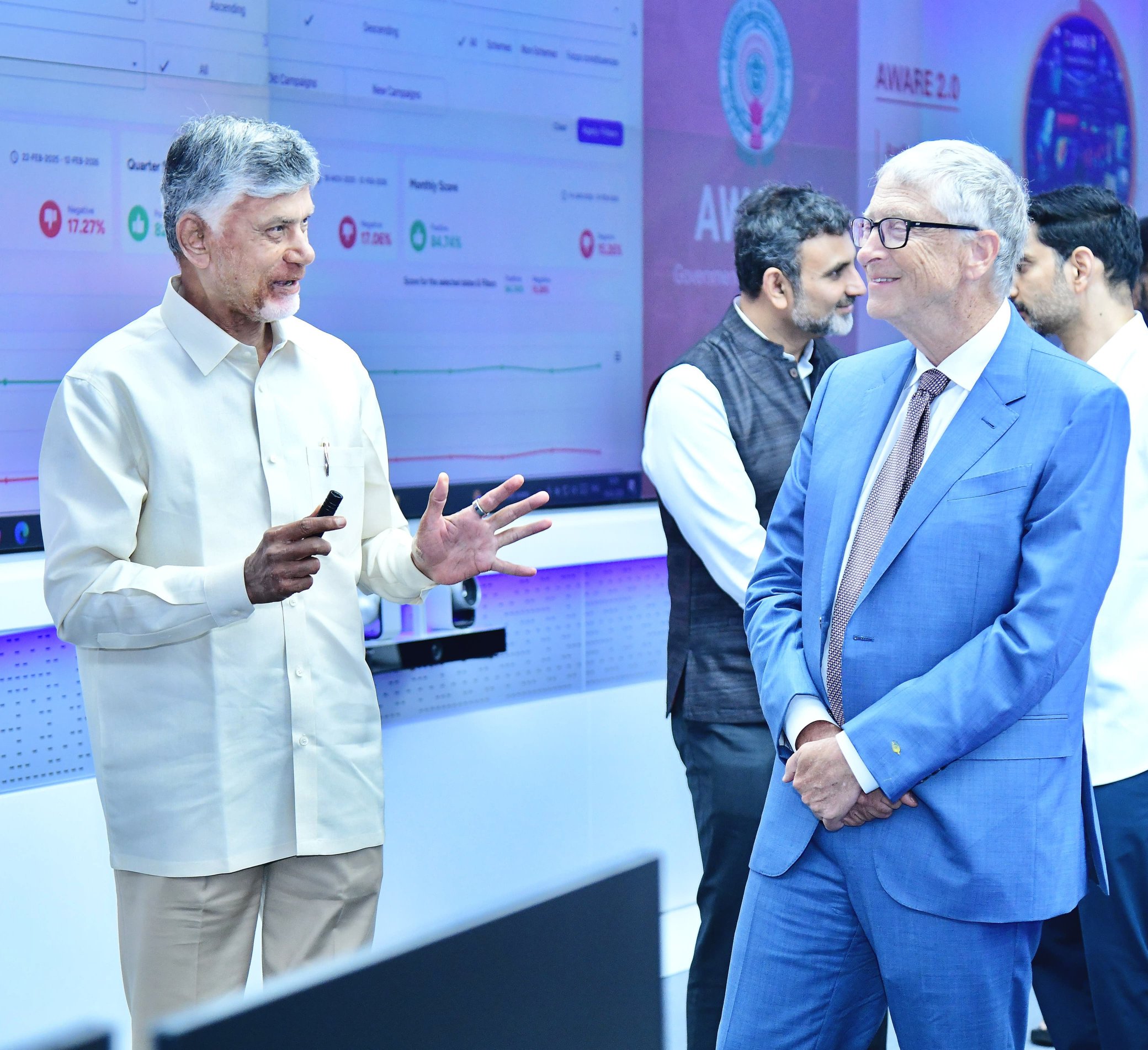
GOYAL
Last Updated on November 12, 2025 12:03 am by BIZNAMA NEWS
Staff Reporter
The Union Minister of Commerce and Industry, Mr Piyush Goyal, reaffirmed the Central Government’s commitment to supporting States and Union Territories in delivering high-quality products to consumers across India. He was addressing the second edition of Udyog Samagam 2025, organised by the Department for Promotion of Industry and Internal Trade (DPIIT).
Mr Goyal underlined that Quality Control Orders (QCOs) are being implemented to strengthen India’s manufacturing ecosystem and ensure that consumers receive superior products. Citing the successful outcomes of QCOs in sectors such as toys and plywood, he noted that such regulatory initiatives have not only improved product quality but also curtailed the inflow of substandard imports, giving Indian manufacturers a competitive edge.
The two-day conference brought together Industry and Commerce Ministers from 14 States and Union Territories, senior government officials, and industry leaders to review the implementation of the Business Reforms Action Plan (BRAP) 2024 and to felicitate top-performing States and UTs.
Collaboration and Reform at the Core
Highlighting the significance of Centre–State collaboration, Mr Goyal said that every State in India has developed its own successful models and best practices that others can learn from. He encouraged governments to establish third-party mechanisms for monitoring and implementing industrial incentives, ensuring timely disbursal and maintaining business confidence.
He also emphasised that a strong partnership between industry and government is key to sustained economic growth. Stressing the importance of transparent governance, Mr Goyal said that law and order, time-bound approvals, and minimum physical interface are essential to building investor trust.
Praising Madhya Pradesh’s initiative of offering ready-built industrial facilities at nominal rates, which has generated thousands of jobs, he urged other States to replicate such innovative models. He also proposed measures like escrow and RBI-linked mechanisms for incentive payments, competitive power tariffs, and self-certification systems to simplify regulatory procedures and promote the ease of doing business.
Sustainability and Innovation: The Way Forward
Reiterating that sustainability will define India’s next phase of industrial growth, Mr Goyal called upon States and UTs to align their industrial strategies with environmental goals. Referring to Prime Minister Narendra Modi’s motto of “Zero Effect, Zero Defect,” he urged industries to adopt sustainable manufacturing practices that minimize environmental impact while ensuring world-class quality standards.
Drawing attention to the fisheries sector under the PM Matsya Sampada Yojana, the Minister highlighted the government’s initiatives supporting cold storage, deep-sea vessels, and cooperative-based procurement. He encouraged States to focus on innovation, women’s participation, startups, deep-tech enterprises, and skill development as engines of inclusive growth. He also noted that India’s new Free Trade Agreements (FTAs) with developed economies will protect the interests of farmers and manufacturers while unlocking new markets and opportunities.
Recognising Reform Leaders
The event opened with remarks from DPIIT Secretary Mr Amardeep Singh Bhatia, who observed that BRAP has evolved into one of the world’s most comprehensive sub-national reform frameworks. Chief Ministers and industry representatives also lauded the collaborative reform momentum across the country.
At Udyog Samagam 2025, States and UTs were felicitated for their achievements under BRAP 2024 across 25 reform areas covering Business Entry, Construction Permits, Labour Regulation Enablers, Land Administration, Utility Permits, and Services Sector initiatives.
- Top Achievers: Uttarakhand and Punjab led across five reform areas.
- High Performers: Andhra Pradesh, West Bengal, Jammu & Kashmir, Kerala, Tamil Nadu, Madhya Pradesh, Telangana, Rajasthan, Jharkhand, and Chhattisgarh excelled in four areas.
- Consistent Achievers: Maharashtra, Assam, Himachal Pradesh, Haryana, Odisha, and Uttar Pradesh were recognized in three areas.
Under Category Y (States/UTs with established systems), fast movers included Odisha, Punjab, Andhra Pradesh, Rajasthan, Madhya Pradesh, Kerala, Assam, Uttarakhand, Jammu & Kashmir, and Karnataka. Aspirers under this category comprised West Bengal, Tamil Nadu, Maharashtra, Gujarat, Uttar Pradesh, and others.
The BRAP 2024 assessment covered 434 reform points, supported by one of the largest feedback exercises involving over 5.8 lakh businesses and 1.3 lakh detailed interviews across the country. The evaluation combined 70% user feedback and 30% evidence-based verification, ensuring transparency and real-world validation of reforms.






